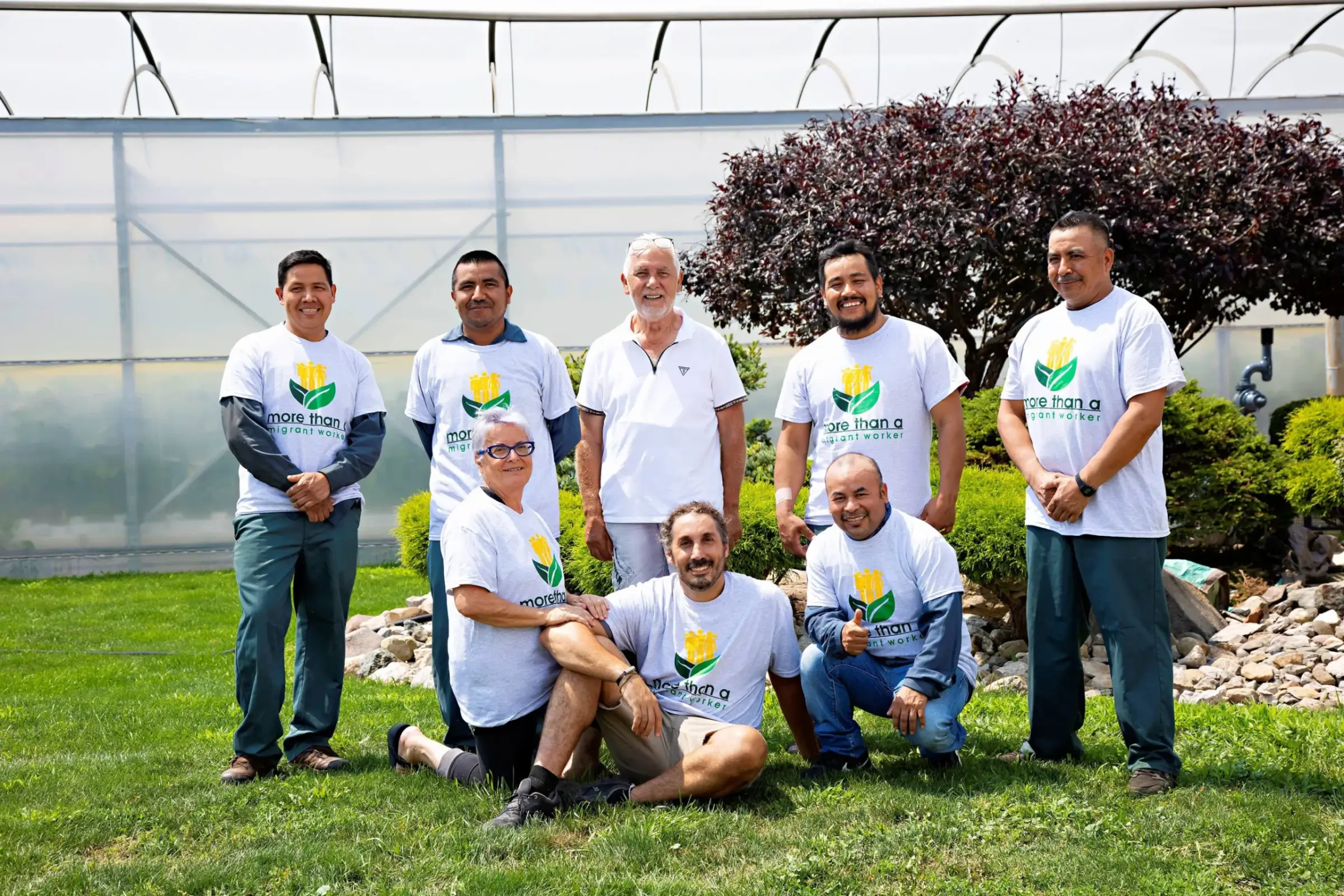There are thousands of migrant workers working on Canadian fruit and vegetable farms. They come from many different countries and some stay only for the season before going home for the winter, whereas others stay year-round.
Regardless of their circumstances, though, there’s one thing they all have in common: their motivation for working in Canada is to build a better life for themselves and for their families back home.
Even though he likes Canada, Alejandro Cortez Huerta still struggles with being far away from his wife and young son in Mexico. He’s been coming to Canada for six years, and works on a vegetable farm in Bradford where he does everything from driving a forklift to working in the fields.
“In our country, there is a lot of unemployment and there is not enough money to get a house and to pay for your children’s education. To have a better life, more than anything, that is why I come here,” he says. “I talk to my family every day and they are my reason to exist. It is a little difficult, but it is necessary to work and have a stable economy, so everything is all right.”
When he’s not in Niagara Region working on a tender fruit farm, Aubrey Isaacs spends the other half of the year at home in Jamaica growing sweet potatoes, yams, cocoas, and pumpkins — as well as the famous Blue Mountain coffee that Jamaica is known for.
According to Foreign Agricultural Resource Management Services, which helps administer SAWP in Ontario, it is common for many to return to the same farm year after year, where their experience and skills make them valued members of the farming business. Some longtime workers are now joined in Canada by their adult children who are also coming here to work.
“Often they can earn more money working on Canadian farms than at home, which helps them pay for health care, housing and schooling for their families or even start their own businesses,” says Stefan Larrass, policy advisor with the Ontario Fruit and Vegetable Growers’ Association.
Juan Carlos Andrade Laguna, who goes by Carlos, works at DC Farms in southwestern Ontario, a greenhouse where he picks and packs vegetables, and handles general maintenance and repairs around the farm. Fuelled by the desire to make life better for his family in Mexico, he’s been coming to Canada for 14 years.
“We know that I have to go out to seek a better life for the children, for my wife, and for our parents who we also help when we can. There are low times, there are good times and more than anything you have to give it all to get ahead,” he believes. “I like the people here and I am grateful to Canada for the opportunity it gives to many people in Mexico and many countries to come to work here.”
It’s not just the workers who value being able to come to Canada; farmers, too, count on their international workers to help them keep homegrown produce on Canadian store shelves.
Fruit and vegetable production is very labour-intensive — many crops must be planted, harvested and cared for by hand because they’re delicate and damage easily. Fruits and vegetables also have short planting and harvesting seasons, so a lot of work has to be done in a short amount of time when the crop is ready — and there aren’t a lot of Canadians lining up to work on farms.
“Quite simply, without these international workers, we wouldn’t be able to grow many of the fruits and vegetables that Canadians love,” Larrass says. “These workers are critically important to our ability to feed Canadians and have as much locally grown produce on our shelves as possible.”
For more information about migrant workers and their lives in Canada — as told in their own words — visit www.morethanamigrantworker.com.

